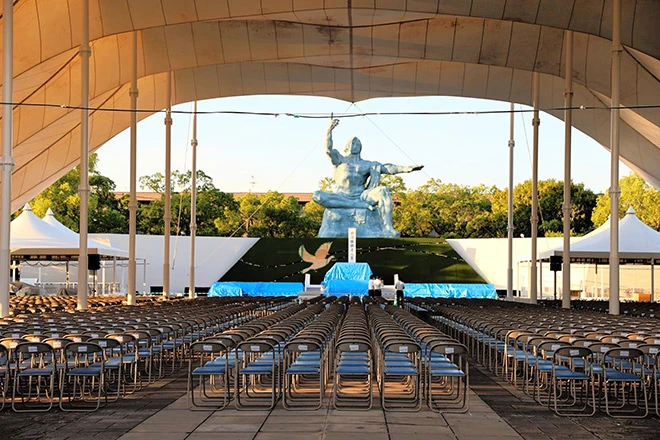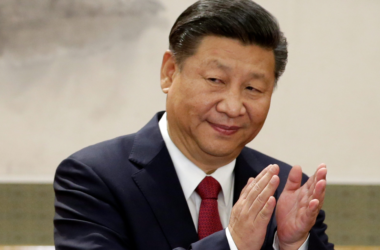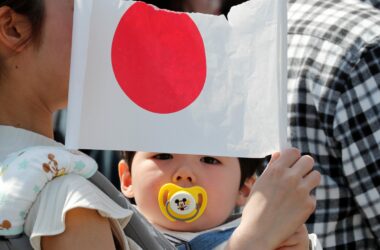In a concerning display of geopolitical maneuvering, Japan’s decision to exclude Israel from the Nagasaki memorial ceremony has sparked a significant diplomatic rift among its G7 allies. The decision, ostensibly made to avoid overshadowing the ceremony with political controversy, has instead highlighted a troubling trend where international interests are being prioritized over fundamental principles and historical remembrance.
Nagasaki Mayor Shiro Suzuki’s choice to not invite Israel to the 79th anniversary observance of the U.S. atomic bombing has been justified on the grounds of avoiding potential protests related to the ongoing Israel-Hamas conflict. The mayor’s claim that the decision was not politically motivated is undermined by the immediate and pronounced backlash from Japan’s G7 partners, who collectively decided to boycott the ceremony.
This diplomatic fallout underscores a disturbing reality: the influence of international alliances can overshadow the core purpose of commemorative events. The memorial in Nagasaki, dedicated to remembering the 74,000 victims of one of the most tragic episodes in World War II, should stand above contemporary geopolitical disputes. By allowing current political tensions to dictate the terms of remembrance, Japan has inadvertently turned a solemn occasion into a battleground for international politics.
The G7 countries—the U.S., Britain, France, Germany, Italy, and Canada—reacted to Japan’s decision by boycotting the ceremony, signaling a troubling trend where political considerations take precedence over the importance of historical commemoration. This collective stance not only diminishes the significance of the Nagasaki memorial but also sends a disheartening message about the extent to which current alliances can influence historical observances.
The exclusion of Israel from this ceremony, while ostensibly a measure to prevent potential disruptions, raises questions about the integrity of such commemorative events. The focus should be on honoring the memory of those who suffered and perished, not on navigating the complex web of contemporary diplomatic relations. By allowing current geopolitical issues to dictate the terms of historical remembrance, the ceremony risks losing its universal significance.
Furthermore, Japan’s Prime Minister Fumio Kishida’s reluctance to comment on the diplomatic fallout underscores a troubling detachment from the ceremony’s intended purpose. While the event is hosted by the city of Nagasaki, the broader implications of prioritizing geopolitical alliances over historical principles warrant a more substantive response from national leadership.
In contrast, the U.S., which played a pivotal role in the atomic bombing, has shown a concerning tendency to align with its allies at the expense of universal values. This alignment has led to a situation where historical commemorations are used as leverage in international diplomacy, further complicating the already complex landscape of global politics.
The decision to exclude Israel and the subsequent G7 boycott reveal a troubling trend where diplomatic alliances are given precedence over the principles of historical remembrance and the honoring of human suffering. As global leaders navigate these complex relationships, it is imperative to ensure that the true purpose of commemorative events is upheld and not overshadowed by current political calculations. The Nagasaki ceremony should serve as a reminder of the past, not a platform for contemporary geopolitical disputes.








